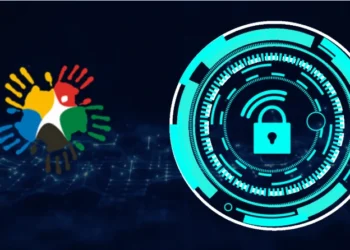In a world where caregiving can often feel like a thankless job, the SASSA Caregiver Grant for Adults stands as a vital resource. If you’re one of the many South Africans caring for an adult with a disability, knowing how to access financial support can sometimes be overwhelming. But this grant, along with the care dependency grant, is intended to lighten your load, helping with everyday expenses and giving you peace of mind while you focus on what truly matters—providing the best care possible. In the following sections, we’ll break down everything you need to know about eligibility and application processes, ensuring that you have all the tools at your fingertips to secure this essential assistance.
The SASSA Caregiver Grant for Adults is a financial assistance program designed to support individuals over 18 years of age who are primary caregivers for persons with disabilities. To be eligible, applicants must be South African citizens or permanent residents, care for a person with a disability who qualifies for a disability grant, and meet specific income restrictions.

Overview of the SASSA Caregiver Grant
The SASSA Caregiver Grant functions as a vital lifeline for those who dedicate themselves to caring for individuals with disabilities. This initiative, akin to what one might receive as a cash disbursement from a state institution, aims to alleviate not only financial burdens but also emotional stress that often accompanies caregiving. As of 2025, eligible caregivers receive R1,890 monthly, helping to cover a variety of essential needs from food and housing to medical expenses and transportation costs. Those acting under the state institution’s guidance must ensure that each recipient provides an affidavit as proof of their caregiving actions.
The importance of this grant cannot be overstated; it ensures that caregivers can focus on providing quality care rather than worrying about meeting basic living expenses. Without such assistance, many caregivers might struggle to sustain both their own livelihoods and those of the people they care for. For some, the added responsibility of complete financial independence without support could even lead to considering placing the cared-for individual in an institution, an option generally considered when no other caregiver support is available.
Another significant aspect of the SASSA Caregiver Grant is its eligibility criteria, which are designed to ensure that support reaches those who need it most. Applicants must be South African citizens or permanent residents, at least 18 years old, and responsible for someone with a qualifying disability. This strict framework guarantees that funds are directed toward individuals who genuinely fulfill these caregiving roles.
Importantly, the grant is periodically reviewed and adjusted based on inflation or changes in government policy. Such rigorous checks ensure that the aid provided remains relevant in an evolving socio-economic landscape. In conjunction with other support programs like the Disability Grant and the care dependency grant, this initiative solidifies a safety net for vulnerable populations in South Africa. Caregivers often need to submit a report alongside their application to ensure all criteria are met and to document how the support aids in their caregiving duties.
Understanding how to navigate the application process effectively is essential for individuals looking to secure this important support.
Eligibility Criteria for the Grant
The SASSA Caregiver Grant is designed to provide crucial support, primarily aimed at caregivers who play an essential role in caring for individuals with disabilities. To embrace this support, applicants must be either South African citizens or permanent residents, and they need to be at least 18 years old. This age requirement is significant because it ensures that the applicant, whether a parent or another type of caregiver, has the maturity and responsibility to handle caregiving duties effectively.
Another key aspect is that the individual receiving care must have a disability qualifying for a disability grant. Proper documentation must confirm that the disability is recognized by the relevant authorities. The nature of the disability and its impact on daily life are critical; caregivers should be prepared to substantiate how they assist in meeting their loved ones’ needs.
Income Restrictions
In terms of financial eligibility, caregivers are subject to income restrictions. As of January 2025, annual earnings must not exceed R37,200. This stipulation helps ensure that the funding is directed towards those facing genuine financial challenges—essentially ensuring that this support reaches under-resourced families who genuinely require assistance.
Additionally, a medical assessment confirming the individual’s disability will be required as part of your application. Caregivers must demonstrate their commitment by showing they provide daily care for the individual with a disability. Providing an affidavit that accurately outlines the day-to-day care responsibilities can significantly bolster an application, underscoring the need for state assistance.This often involves detailed accounts of how they assist with personal tasks, managing medication, or coordinating essential services. As residents in their particular area, caregivers play a pivotal role in maintaining the well-being of those they support, acting as both a social and practical lifeline.
Gathering all necessary documentation, such as medical reports and proof of income, becomes the next vital step in securing this valuable grant. Ensuring every detail is correct elevates the sense of security for both applicants and beneficiaries of the system.
Required Documentation

When applying for the SASSA Caregiver Grant, ensuring that you gather the necessary documentation is essential. Missing or incorrect documents can lead to frustrating delays or even rejections of your application. It’s wise to start working on your paperwork as early as possible. Following the proper procedure can prevent unnecessary setbacks and assure a smoother process.
Key Documents Needed
-
Proof of Identity: A valid Refugee ID or asylum seeker documentation from the Department of Home Affairs is crucial. It verifies your status and forms the foundation of your application.
-
Child’s Birth Certificate: Provide a birth certificate or official adoption papers for the child under your care. This confirms the child’s identity and relationship to you.
-
Proof of Residence: Documents like utility bills or a signed rental agreement serve as proof of where you live, reassuring SASSA that you provide a stable environment for the child. This is a common requirement that aids in confirming the residential security in your area.
-
Bank Account Details: Include a bank statement or banking information, important for direct deposit once you receive approval for the grant. The receipt of these payments is crucial to maintaining the financial support system for beneficiaries.
A smooth application relies heavily on having these documents in order. For instance, consider Jane, who meticulously gathered her documents but overlooked her proof of residence; this oversight delayed her entire application by several weeks. Instead of facing similar setbacks, it’s better to prepare yourself ahead of time.
Once you have everything organized, you’ll be well-equipped to navigate the next steps in securing your support. Let’s transition into exploring how to successfully complete that process.
How to Apply for the Grant
Applying for the SASSA Caregiver Grant may seem daunting, but with a clear understanding of the steps involved, the process can be straightforward. The first thing you’ll want to do is gather all required documents. Having these on hand not only saves time but also helps prevent delays that could arise due to missing paperwork. Ensure you have your Refugee ID, the child’s birth certificate or adoption papers, proof of residence like utility bills, and bank account details ready for processing.
With your documents prepped, the next step is submitting your application.
There are two primary methods for submitting your application: online through the official SASSA website or in person at a local SASSA office. If you choose to apply online, ensure that you understand the steps on their website and follow them diligently—there could be specific prompts or forms needed based on your unique situation. On the other hand, applying in person allows direct interaction with staff who can help clarify any doubts about your application or the necessary documentation.
After you submit your application, it’s not uncommon to undergo a verification stage. During this process, SASSA may request additional information or even schedule an interview to confirm your eligibility. This is essential; it ensures that everyone receiving aid truly qualifies under the criteria set forth by SASSA. Be prepared and patient during this phase, as thorough checks reinforce the integrity of the grant program.
Once your application has been reviewed, you’ll receive a notification regarding your grant status—this can take anywhere from 30 to 60 days after submission. While this length of time might feel disheartening, remember that each application undergoes scrutiny to filter out those who might not qualify under established guidelines.
Now that you’ve navigated through these initial steps of the process and understood what to expect, knowing what happens once you’re approved is equally important.
Once approved for the caregiver grant, it’s essential to understand how and when you will receive your financial support. Payments are typically processed monthly via direct deposit into your designated bank account, offering some degree of convenience and ensuring timely access to funds that support both you and the child in your care. The UIF (Unemployment Insurance Fund) benefits could also be applicable depending on your employment status, providing additional security for residents across the country.Keeping track of these deposits can help manage finances more effectively. This is particularly important when considering how additional financial aid, such as the child support grant, can contribute to a family’s overall stability.
As we consider these mechanisms of support, it’s vital to explore the broader spectrum of assistance available for caregivers facing financial challenges. This includes understanding the role an application form plays in the process, as well as the potential need for a means test, which evaluates the financial status of the applicant and their spouse to determine their eligibility for support.
Financial Support Offered
Each month, eligible caregivers receive R1,080, which can provide much-needed assistance to cover essential costs for the children under their care. The content of the child support grant is designed specifically to ease financial pressure on parents and ensure that basic needs are met.
Imagine the relief a caregiver feels knowing they have a little extra money to buy groceries or pay utility bills. With rising costs, especially in today’s economy, this grant helps make a difference. This support isn’t just numbers on a page; it translates to real help in everyday life, providing a significant place of relief in a household’s budgetary framework.
While R1,080 may not fully cover every expense associated with caring for a child, it creates a financial cushion that eases some of the burdens. For many caregivers, this grant represents a vital lifeline that allows them to allocate funds toward their most pressing needs, fostering stability in their household.
| Expense Category | Monthly Estimated Cost |
|---|---|
| Food | R300-R400 |
| Utilities | R200-R300 |
| Medical Supplies | R150-R250 |
| Miscellaneous | R100-R150 |
As depicted in the table, typical monthly expenses can quickly add up. When caregivers allocate their R1,080 wisely across these categories—prioritizing food and utilities—they can secure the basics needed for both themselves and the children they care for.
It’s important to note that adjustments might be necessary depending on specific household circumstances or additional support from community resources or family.
Understanding how this financial support functions truly enhances its effectiveness while also prompting deeper inquiries regarding eligibility and application processes for those who seek assistance. For instance, an officer at a SASSA office can offer invaluable guidance on how to complete the application form accurately, ensuring all necessary details are provided.
FAQs About the SASSA Caregiver Grant

One of the most crucial aspects of understanding the SASSA Caregiver Grant is knowing who qualifies for it. Only caregivers of individuals with disabilities eligible for a disability grant can apply. This means applicants must be South African citizens or permanent residents, and they need to be over 18 years old. The requirement ensures that the caregiving relationship is anchored in a responsible adult making a sustained commitment to their charge.
Moving on to the grant amount, as of 2025, eligible caregivers receive R1,080 monthly. This financial support aims to alleviate some of the pressures and burdens faced by caregivers who often juggle both emotional and financial responsibilities in their roles. It’s designed to provide a small but significant buffer against everyday expenses, which can be especially daunting in households where income may be limited.
When applying for this grant, possessing the right documentation is key. Applicants will need to fill out an application form and provide supporting documents that verify their identity, residence, and financial status through a means test.
- A valid form of identification (ID card)
- Proof of residence
- Medical confirmation regarding the disability of the person being cared for
- Financial proofs validating eligibility based on income guidelines
This paperwork helps SASSA ensure that grants are awarded appropriately according to specified criteria. The process allows for a fair assessment of each application, ensuring the grant reaches those who need it the most.
Caregivers have a choice for starting the application process: they can fill out an application online via the SASSA website or visit local SASSA offices in their place to submit an application in person. Each method has its benefits; online applications offer convenience while in-person visits allow for direct clarification of any questions that might arise during the process.
Important to remember is that only one grant per disabled individual is allowed under this program. However, if applicable, the person with disabilities may also access other types of financial assistance like the Disability Grant. This regulation helps streamline aid distribution, ensuring resources are allocated fairly without duplication.
Clarifying these points not only empowers prospective applicants but also encourages more individuals to reach out for help when they need it most. Having well-founded knowledge about the grant enhances everyone’s ability to navigate through the complexities often tied to these essential support systems effectively.
Ultimately, understanding the qualification requirements and application process for the SASSA Caregiver Grant can significantly aid those in need of support. It’s crucial to stay informed and proactive about accessing these valuable resources. With proper guidance and information, caregivers, parents, and their families can better understand how to take advantage of these opportunities, ensuring financial assistance is available for their specific needs.










